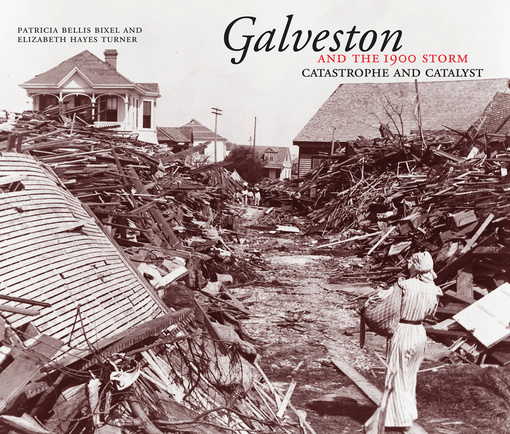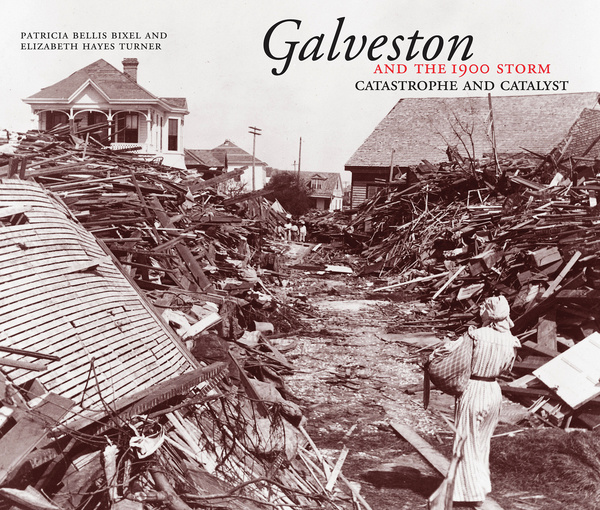Galveston and the 1900 Storm
Catastrophe and Catalyst
Runner-up, Spur Award for Best Western Nonfiction—Contemporary, Western Writers Of America, 2001
The Galveston storm of 1900 reduced a cosmopolitan and economically vibrant city to a wreckage-strewn wasteland where survivors struggled without shelter, power, potable water, or even the means to summon help. At least 6,000 of the city's 38,000 residents died in the hurricane. Many observers predicted that Galveston would never recover and urged that the island be abandoned. Instead, the citizens of Galveston seized the opportunity, not just to rebuild, but to reinvent the city in a thoughtful, intentional way that reformed its government, gave women a larger role in its public life, and made it less vulnerable to future storms and flooding.
This extensively illustrated history tells the full story of the 1900 Storm and its long-term effects. The authors draw on survivors' accounts to vividly recreate the storm and its aftermath. They describe the work of local relief agencies, aided by Clara Barton and the American Red Cross, and show how their short-term efforts grew into lasting reforms. At the same time, the authors reveal that not all Galvestonians benefited from the city's rebirth, as African Americans found themselves increasingly shut out from civic participation by Jim Crow segregation laws. As the centennial of the 1900 Storm prompts remembrance and reassessment, this complete account will be essential and fascinating reading for all who seek to understand Galveston's destruction and rebirth.
Patricia Bellis Bixel is a professional historian and assistant editor of the Journal of Southern History at Rice University.
Elizabeth Hayes Turner is Associate Professor of History at the University of Houston, Downtown.
- Foreword
- Acknowledgments
- Introduction: "A place of unique, sensual beauty"
- Chapter One. "A thousand little devils, shrieking and whistling": September 8, 1900
- Chapter Two. "You brave people of Galveston": From Wreckage to Recovery
- Chapter Three. "Everything that mortal men can do": Protecting Galveston Island
- Chapter Four. "To attain that superior success": Recovery and Growth
- Conclusion: "I will never forget those days"
- Bibliographical Essay
- Index





